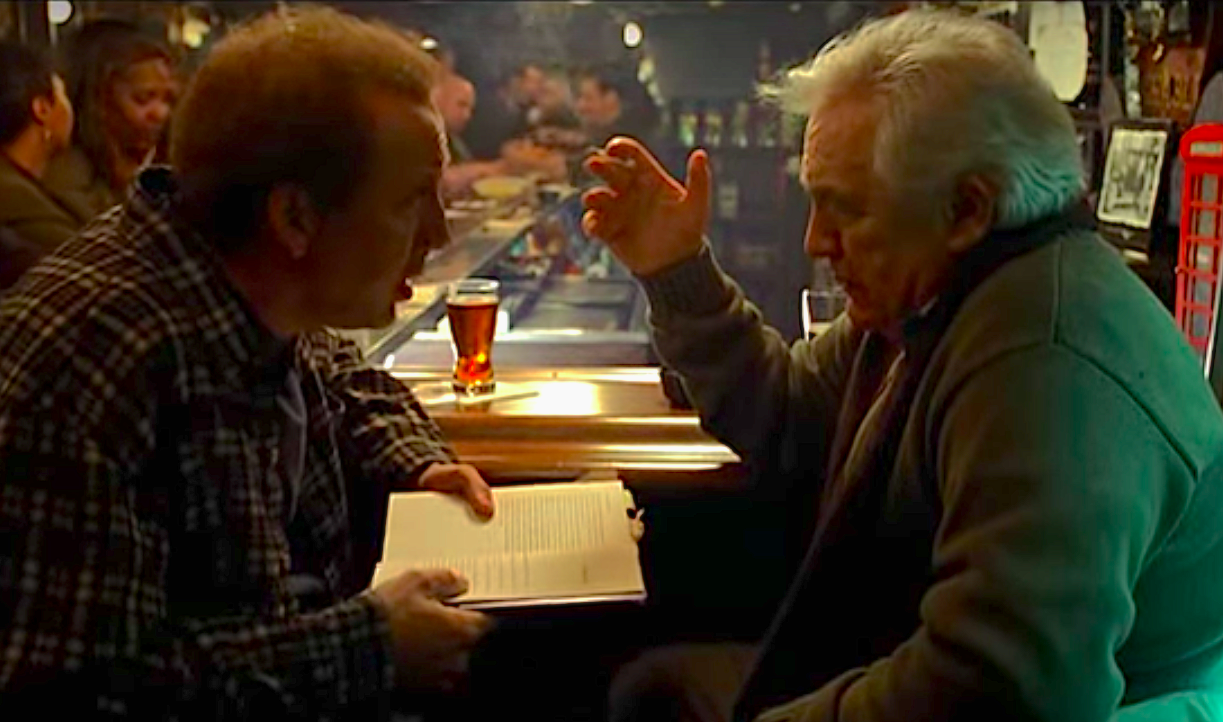1) On why humans seek out stories
We go to the movies to enter a new, fascinating world, to inhabit vicariously another human being who at first seems so unlike us and yet at heart is like us, to live in a fictional reality that illuminates our daily reality. We do not wish to escape life but to find life, to use our minds in fresh, experimental ways, to flex our emotions, to enjoy, to learn, to add depth to our days.
2) On creating a specific world
The irony of setting versus story is this: The larger the world, the more diluted the knowledge of the writer, therefore the fewer his creative choices and the more clichéd the story. The smaller the world, the more complete the knowledge of the writer, therefore the greater his creative choices. Result: a fully original story and victory in the war on cliché.
3) On creating structure
The function of structure is to provide progressively building pressures that force characters into more and more difficult dilemmas where they must make more and more difficult risk-taking choices and actions, gradually revealing their true natures, even down to the unconscious self.
4) On explanation versus dramatization
Master storytellers never explain. They do the hard, painfully creative thing — they dramatize. Audiences are rarely interested, and certainly never convinced, when forced to listen to the discussion of ideas. Dialogue, the natural talk of characters pursuing desire, is not a platform for the filmmaker’s philosophy. Explanations of authorial ideas, whether in dialogue or narration, seriously diminish a film’s quality. A great story authenticates its ideas solely within the dynamics of its events; failure to express a view through the pure, honest consequences of human choice and action is a creative defeat no amount of clever language can salvage.
5) On the importance of research
The key to varying a repetitious cadence is research. Superficial knowledge leads to a bland, monotonous telling. With authorial knowledge we can prepare a feast of pleasures. Or at the very least, add humor.
6) On avoiding unnecessary exposition
Never include anything the audience can reasonably and easily assume has happened. Never pass on exposition unless the missing fact would cause confusion. You do not keep the audience’s interest by giving it information, but by withholding information, except that which is absolutely necessary for comprehension. Pace the exposition. Like all else, exposition must have a progressive pattern: Therefore, the least important facts come in early, the next most important later, the critical facts last. And what are the critical pieces of exposition? Secrets. The painful truths characters do not want known.
7) On avoiding coincidences
Story creates meaning. Coincidence, then, would seem to be our enemy, for it is the random, absurd collusions of things in the universe and is, by definition, meaningless. And yet coincidence is a part of life, often a powerful part, rocking existence, then vanishing as absurdly as it arrived. The solution, therefore, is not to avoid coincidence, but to dramatize how it may enter life meaninglessly, but in time gain meaning, how the antilogic of randomness becomes the logic of life-as-lived.
8) On keeping characters’ motivations mysterious
Do not reduce characters to case studies (an episode of child abuse is the cliché in vogue at the moment), for in truth there are no definitive explanations for anyone’s behavior. Generally, the more the writer nails the motivation to specific causes, the more he diminishes the character in the audience’s mind. Rather, think through to a solid understanding of motive, but at the same time leave some mystery around the whys, a touch of the irrational perhaps, room for the audience to sue its own life experience to enhance your character in its imagination.
9) On what storytelling encompasses
Story is about principles, not rules.
Story is about eternal, universal forms, not formulas.
Story is about archetypes, not stereotypes.
Story is about thoroughness, not shortcuts.
Story is about the realities, not the mysteries of writing.
Story is about mastering the art, not second-guessing the marketplace.
Story is about respect, not disdain, for the audience.
Story is about originality, not duplication.
Read the book:


